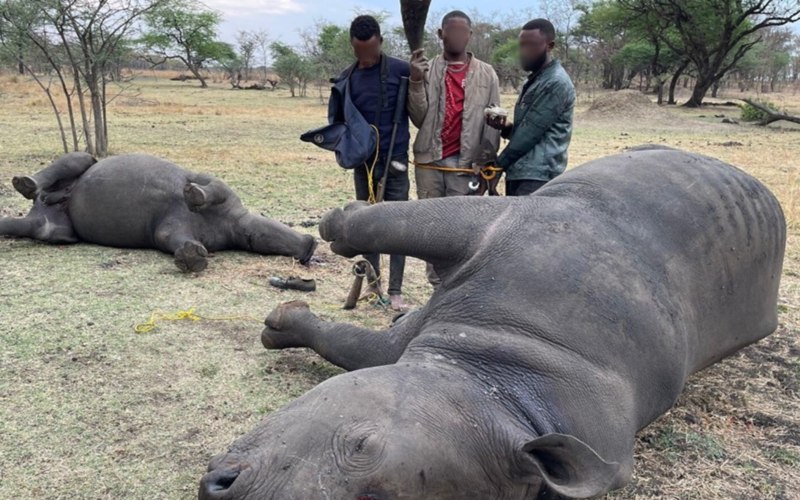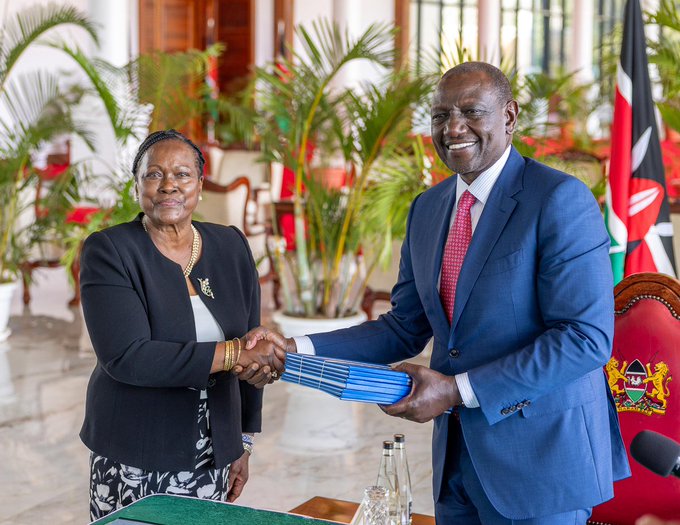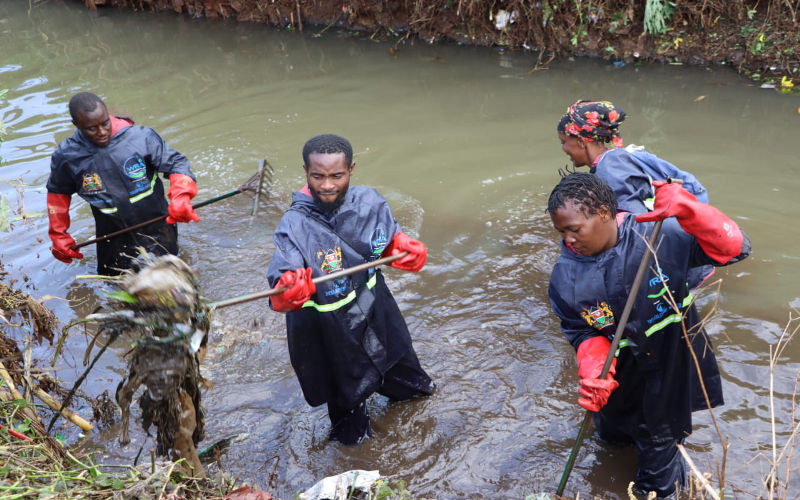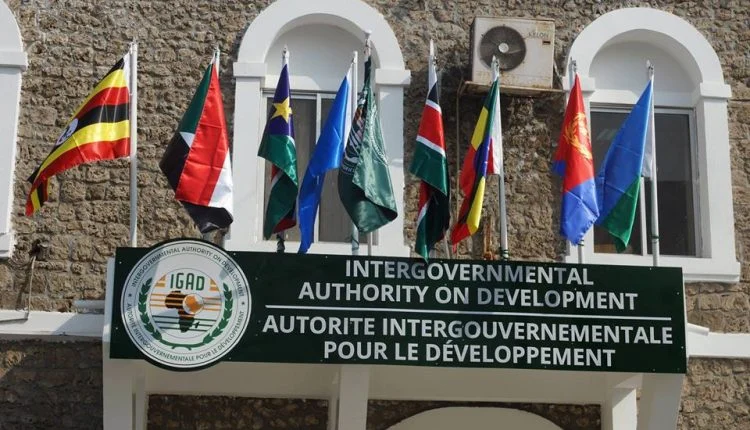WHO urges enhanced global action as Mpox cases spread beyond Africa

The most recent case reported on Thursday in Sweden was linked to a Swedish traveller returning from Africa.
The World Health Organisation (WHO) has called for enhanced surveillance, data sharing, and coordinated efforts to understand the transmission of the Mpox virus better. Clade 1b, previously found mainly in the Democratic Republic of Congo (DRC), has now been detected in Sweden, marking the first case outside Africa. This case was traced back to a Swedish traveller who had recently returned from Africa.
WHO Director-General Tedros Adhanom Ghebreyesus said the discovery of the first Mpox clade 1b infection in Sweden highlights the urgent need for global collaboration to address the spread of the virus.
More To Read
- England confirms new mpox strain: What you need to know
- WHO calls for ceasefire after deadly attacks on civilians in Sudan kill 114, including 63 children
- Kenya and world face growing health threat as ultra-processed foods flood markets and diets
- WHO calls for urgent action to achieve universal health coverage by 2030
- Somalia on high alert as Marburg virus outbreak hits neighbouring Ethiopia
- Experts at COP30 launch Sh39 billion plan to shield hospitals from climate threats
“We encourage all countries to enhance surveillance, share data, and work to better understand the transmission; share tools like vaccines; and apply lessons learned from prior public health emergencies of international concern in addressing the current outbreak,” Tedros stated.
According to the Africa CDC, at least 12 African countries, including those previously unaffected like Burundi, Kenya, Rwanda, and Uganda, have reported Mpox outbreaks. In 2024, these countries have confirmed 2,863 cases and 517 deaths, primarily in the DRC. Suspected cases across the continent have surged past 17,000, a significant increase from 7,146 cases in 2022 and 14,957 cases in 2023. This increase is concerning given the existing weaknesses in surveillance, laboratory testing, and contact tracing.
The WHO declared Mpox a global public health emergency for the second time in two years on Wednesday, following an outbreak in the DRC that spread to neighbouring countries.
Although Mpox is endemic in 11 of the DRC’s 26 provinces, cases have risen sharply for over two years. The DRC declared an epidemic in December 2022, and cases tripled in 2023, with over 14,000 suspected cases and 511 deaths reported. In 2024 the situation has further deteriorated, with more than 14,000 suspected cases reported across 23 provinces between January and early August.
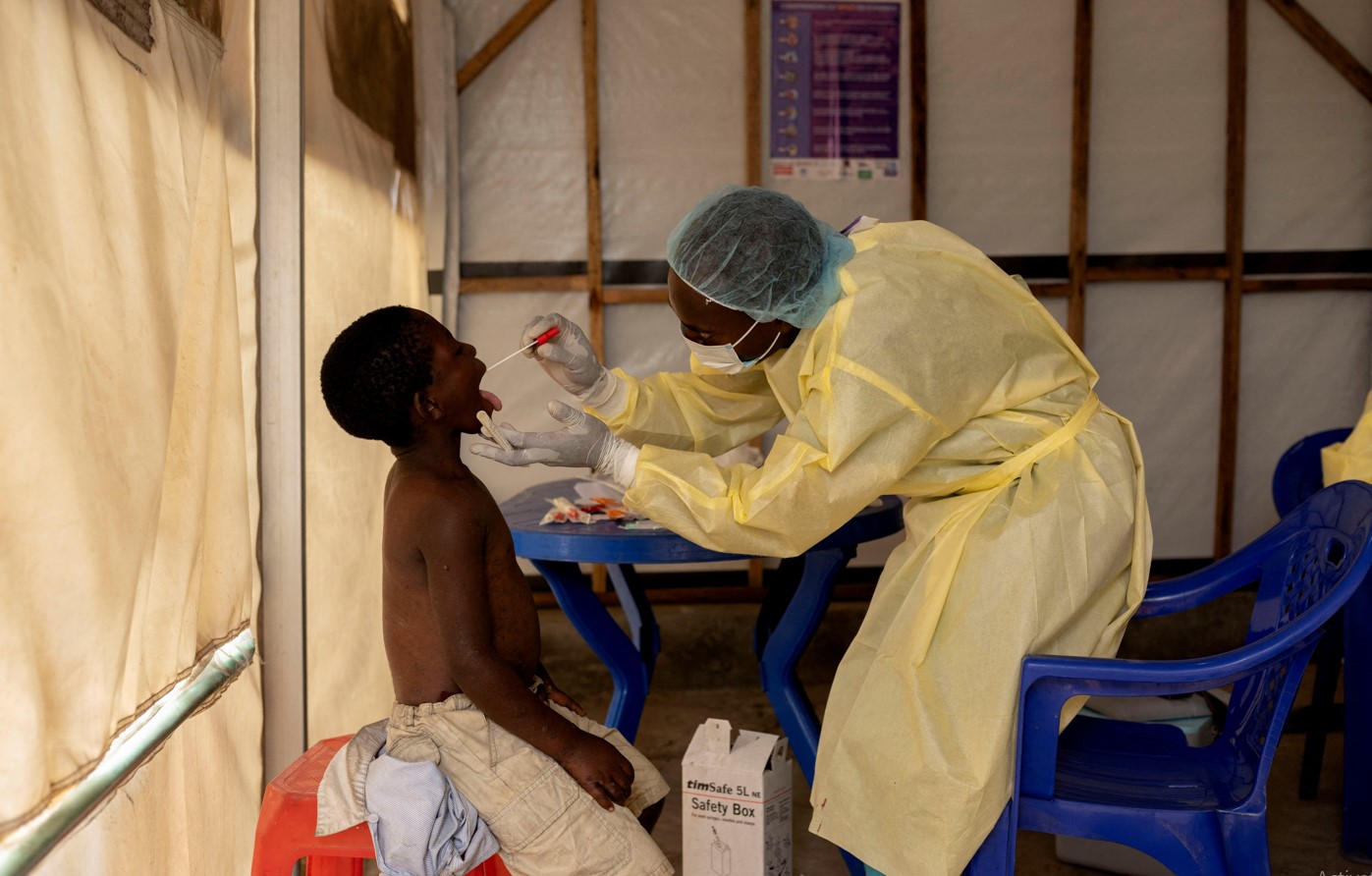 FILE PHOTO: Christian Musema, a laboratory nurse, takes a sample from a child declared a suspected case of Mpox - an infectious disease caused by the monkeypox virus that sparks off a painful rash, enlarged lymph nodes and fever; at the treatment centre in Munigi, following Mpox cases in Nyiragongo territory near Goma, North Kivu province in the Democratic Republic of Congo on July 19, 2024. (Photo: Reuters)
FILE PHOTO: Christian Musema, a laboratory nurse, takes a sample from a child declared a suspected case of Mpox - an infectious disease caused by the monkeypox virus that sparks off a painful rash, enlarged lymph nodes and fever; at the treatment centre in Munigi, following Mpox cases in Nyiragongo territory near Goma, North Kivu province in the Democratic Republic of Congo on July 19, 2024. (Photo: Reuters)
According to Doctors Without Borders, the acceleration of the epidemic in DRC is particularly alarming due to a genetic mutation identified in South Kivu. Previously, Mpox outbreaks were mainly zoonotic, transmitted from animals to humans. However, the disease has now been spreading from person to person for months.
In South Kivu, Mpox has been transmitted exclusively through human contact, by both sexual and close household contact, across multiple health zones.
The disease has been reported in displaced persons camps around Goma, North Kivu, where high population density and rates of sexual violence exacerbate the situation. The risk of a dramatic increase in cases is high due to significant population movements in and out of the DRC.
However, the identification of cases, patient monitoring, and available care remain extremely limited. The lack of vaccines compounds the difficulty, and in some communities, there is a belief that the disease is linked to mystical practices or witchcraft, complicating adherence to public health measures. This underscores the need for close community engagement in the response.
Cross-border travel has increased the exposure of countries to the Mpox virus and the more concerning clade 1b, which is more potent than previous clades.
Kenya recently reported its first case of Mpox, which was traced back to a traveller from Uganda who passed through Kenya on their way to Rwanda. The most recent case reported on Thursday in Sweden was also linked to a Swedish traveller returning from Africa.
Top Stories Today
Reader Comments
Trending

